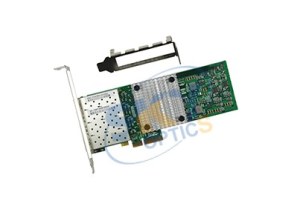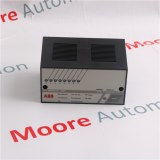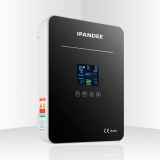PCI Express x4 Quad Port SFP Gigabit Server Adapter (Intel I350AM4 Based)Quad-port Gigabit Ethernet server adapters designed with performance enhancing features and new power management technologiesKey FeaturesHalogen-free quad-port Gigabit Ethernet adapters with fiber interface optionsInnovative power management features including Energy Efficient Ethernet (EEE) and DMA Coalescing for increased efficiency and reduced power consumptionFlexible I/O virtualization for port partitioning and quality of service (QoS) of up to 32 virtual portsScalable iSCSI performance delivering cost-effective SAN connectivityHigh-performing bridgeless design supporting PCI Express* Gen 2.1 5GT/sReliable and proven Gigabit Ethernet technology from Intel CorporationOverviewThe fiber nic builds on our history of excellence. we continues its market leadership with this new generation of PCIe* GbE network adapters. Built with the bridgeless Intel® Ethernet Controller I350, these adapters represent the next step in the Gigabit Ethernet (GbE) networking evolution for the enterprise and data center by introducing new levels of performance through industry-leading enhancements for both virtualized and iSCSI Unified Networking environments. This new family of adapters also includes new power management technologies such as Energy Efficient Ethernet (EEE) and DMA Coalescing (DMAC).Flexible I/O VirtualizationIt includes Intel® Virtualization Technology for connectivity (Intel® VT-c) to deliver I/O virtualization and Quality of Service (QoS) features designed directly into the controller on the adapter. I/O virtualization advances network connectivity models used in today's servers to more efficient models by providing Flexible Port Partitioning (FPP), multiple Rx/Tx queues, and on- controller QoS functionality that can be used in both virtual and non-virtual server deployments.By taking advantage of the PCI-SIG SR-IOV specification, the adapter enables Flexible Port Partitioning (FPP). With FPP, virtual controllers can be used by the Linux* host directly and/or assigned to virtual machines. With this port partitioning, administrators can create up to eight dedicated connections on a single Ethernet port for use in bare metal and virtualized server deployments.In a bare-metal Linux server, host processes can be assigned to dedicated network resources to provide traffic isolation and balanced bandwidth allocation.In a virtualized environment, a VM can be assigned to a virtual controller to reduce the CPU overhead seen when using a software-based network bridge by offloading network traffic management to the controller.Scalable iSCSI Performance It with native iSCSI initiators built into Microsoft* Windows*, Linux* and VMware* ESX platforms provides a simple, dependable, cost-effective way to connect to iSCSI SANs. These native initiators are broadly tested using multiple generations of operating systems, storage systems, and OS tools to help ensure reliability and ease of use. Standardizing on Intel® Ethernet Adapters for iSCSI enables administrators to use a single initiator, TCP/IP stack, and a common set of management tools and IT policies. In addition, Intel® Ethernet Server Adapters include a number of hardware features designed to accelerate iSCSI traffic and enhance data processing.For example, TCP segmentation offload and checksum offload capabilities help reduce processor usage, increase throughput, and deliver exceptional iSCSI performance. Finally, using native OS initiators, it supports the CRC-32 digest instruction set included with Intel® Xeon® processor products, which improves transmission reliability and delivers an enterprise-class iSCSI solution.Power Management Technologies Today, companies everywhere are looking for ways to decrease energy consumption across the enterprise to reduce costs and environmental impact, while at the same time solving increasingly important power density challenges. That's why we has introduced new, advanced Power Management Technologies (PMTs) with the fiber nic that enable enterprises to configure power options on the adapter and more effectively manage their power consumption.Energy Efficient Ethernet (EEE) It supports the IEEE802.3az Energy Efficient Ethernet (EEE) standard so that, during periods of low network activity, EEE reduces the power consumption of an Ethernet connection by negotiating with a compliant EEE switch port to transition to a low power idle (LPI) state. This reduces the controller power to approximately 50% of its normal operating power, saving power on the network port and the switch port. As soon as increased network traffic is detected, the controller and the switch quickly come back to full power to handle the increased network traffic. EEE is supported for both 1000BASE-T and100BASE-TX.DMA CoalescingAnother power management technology that can reduce power on the server platform is DMA Coalescing (DMAC). Typically, when a packet arrives at a server, DMA calls are made to transfer the packet within the server. These calls wake up the processor, memory and other system components from a lower power state in order to perform the tasks required to handle the incoming packet.Based on the configurable DMAC settings, incoming packets are buffered momentarily before any DMA calls are made. This enables the controller to intelligently identify opportunities to batch multiple packets together so that when components are wakened from lower power states they can efficiently handle the batched packets at the same time. This enables platform components to remain in lower power states longer, which can dramatically reduce platform energy consumption. DMAC synchronizes DMA calls across all controller ports to ensure maximum power savings.Software Tools and ManagementAdvanced Network Services (ANS) include new teaming technologies and techniques such as Virtual Machine Load-Balancing (VMLB) for Hyper-V environments. Today, ANS includes a variety of teaming configurations for up to eight adapters, support for mixed vendors server adapters teaming and includes support for 802.1q VLANs, making ANS one of the most capable and comprehensive tools for supporting server adapter teaming.Additionally, Intel® PROSet for Windows* Device Manager and PROset CL extends driver functionality to provide additional reliability and Quality of Service features and configuration.General FeaturesIntel® Ethernet Controller I350With PCI Express* V2.1 (5 GT/s) Support Low-Profile and Standard height fullEthernet FeaturesIEEE* 802.3 auto-negotiation1Gb/s Ethernet IEEE 802.3, 802.3u, 802.3ab PHY specifications CompliantIntegrated PHY for 10/100/1000 Mb/s for multispeed, full, and half-duplex IEEE 802.3x and 802.3z compliant flow control support with software-controllable Rx thresholds and Tx pause framesAutomatic cross-over detection function (MDI/MDI-X)IEEE 1588 protocol and 802.1AS implementationPower Management and Efficiency<1W S0-Max (state) 1000BASE-T Active 90oC (mode)<400mW S0-Typ (state) 100BASE-T Active (mode)IEEE802.3az - Energy Efficient Ethernet (EEE)DMA CoalescingSmart Power Down (SPD) at S0 no link / Sx no linkActive State Power Management (ASPM) SupportLAN disable functionFull wake up supportAdvanced Power Management (APM) Support (formerly Wake on LAN)Advanced Configuration and Power Interface (ACPI) specification v2.0cMagic Packet* wake-up enable with unique MAC addressACPI register set and power down functionality supporting D0 and D3 statesMAC Power Management controlsLow Power Link Up - Link Speed ControlPower Management Protocol Offload (Proxying)Latency Tolerance Reporting (LTR)I/O Virtualization FeaturesEight transmit (Tx) and receive (Rx) queue pairs per portFlexible Port Partitioning: 32 Virtual Functions on Quad-port or 16 Virtual Functions on Dual-portSupport for PCI-SIG SR-IOV specificationRx/Tx Round-Robin SchedulingTraffic IsolationTraffic SteeringVM to VM Packet forwarding (Packet Loopback)MAC and VLAN anti-spoofingMalicious driver detectionStorm controlPer-pool statistics, offloads, and jumbo frames supportIndependent Function Level Reset (FLR) for Physical and Virtual FunctionsIEEE 802.1q Virtual Local Area Network (VLAN) support with VLAN tag insertion, stripping and packet filtering for up to 4096 VLAN tagsIEEE 802.1q advanced packet filteringMirroring rulesSupport for Simple VEPAVF Promiscuous modesStateless Offloads/Performance FeaturesTCP/UDP, IPv4 checksum offloads (Rx/ Tx/Large-send)Extended Tx descriptors for more offload capabilitiesIPv6 support for IP/TCP and IP/UDP receive checksum offloadTx TCP segmentation offload (IPv4, IPv6)Transmit Segmentation Offloading (TSO)Interrupt throttling controlLegacy and Message Signal Interrupt (MSI) ModesMessage Signal Interrupt Extension (MSI-X)Intelligent interrupt generationReceive Side Scaling (RSS) for Windows environment Scalable I/O for Linux environments (IPv4, IPv6, TCP/UDPSupport for packets up to 9.5K Bytes (Jumbo Frames)Low Latency InterruptsHeader/packet data split in receivePCIe v2.1 TLP Processing Hint RequesterDescriptor ring management hardware for Transmit and ReceiveRemote Boot OptionsPreboot eXecution Environment (PXE) flash interface supportIntel® Ethernet iSCSI Remote Boot for Windows, Linux, and VMwareIntel Boot Agent software: Linux boot via PXE or BOOTP, Windows* Deployment Services, or UEFIManageability FeaturesManagement Component Transport Protocol (MCTP)Firmware Based Thermal ManagementIEEE 802.3 MII Management InterfaceMAC/PHY Control and StatusWatchdog timerExtended error reportingController Memory ProtectionVital Product Data (VPD) SupportAdapter Product FeaturesPlug and play specification supportIntel® I/O Acceleration Technology (Intel® I/OAT)Ships with full-height bracket installed; low-profile bracket included in packageTechnical FeaturesData rate supported per port: 1000 MbpsBus type: PCI Express* 2.1 (5 GT/s))Bus width:4-lane PCI Express; operable in x4, x8 and x16 slotsInterrupt levels: INTA, INTB, INTC, INTD, MSI, MSI-XController-processor: Intel Ethernet Controller I350AM4Power consumption (typical): 6.0 WStorage temperature: -40 °C to 70 °C (-40 °F to 158 °F)Operating temperature: 0 °C to 55 °C (32 °F to 131 °F)Storage humidity: 90% non-condensing relative humidity at 35 °CNetwork Operating Systems (NOS) Software SupportDOS, Novell ODIWindows XP 32-bit (64-bit)Windows Server 2003 32-bit (64-bit)Windows Vista 32-bit (64-bit)Windows 7 32-bit (64-bit)Windows 8 32-bit (64-bit)Windows 8.1 32-bit (64-bit)Windows Server 2008 32-bit (64-bit)Windows Server 2008 R2 32-bit (64-bit)Windows Server 2012 Windows Server 2012 R2 Linux 2.4 series kernel、2.6.x、3.x FreeBSD 7.x or most of the FreeBSD UnixWare / Open Unix 8Sun Solaris x86Xen4VMwarePS: Above details are only for reference, if there are any changes, no inform will have. url: http://www.dwdmsfp.net
Ubicación : , 518133 ShenZhen,
Persona a contactar : Lee Jacky, 86 755 33967196









